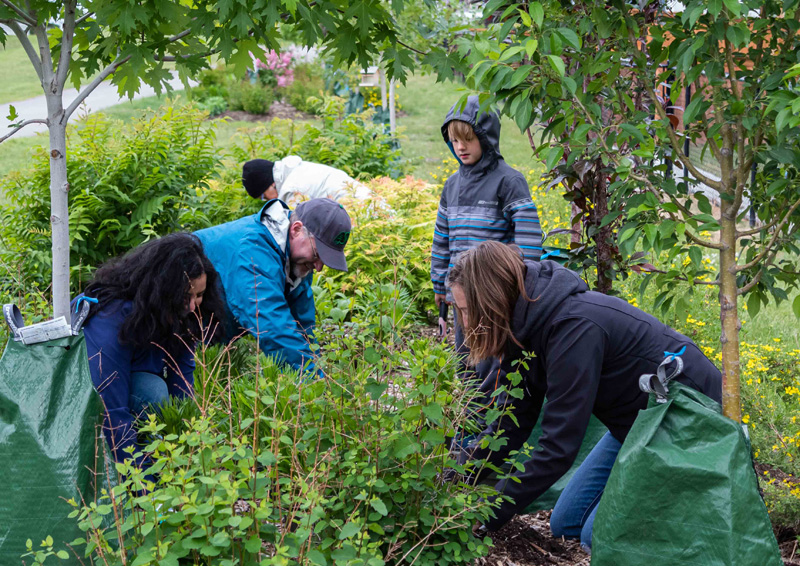
To celebrate National Pollinator Week Chestermere residents raised awareness of local pollinators by adding Perennial Liatris plants to the pollinator garden on June 20 behind the East Lake School.
The goal of National Pollinator Week is to raise awareness of the importance of pollinators and increase habitats for local pollinators by either building structures to assist them with nesting, or create a place where they can comfortably repopulate, and manufacture food.
“National Pollinator Week provides a short-term focus on the importance of these often-invisible workers among us,” said Chair of the Bee City Committee Neil Neufeld.
“Bee’s, along with other pollinators, play an important and intricate part of providing to our natural world. Their contribution shouldn’t be underestimated,” Neufeld said.
Chestermere is raising awareness for the pollinators by advertising and promoting the pollinator garden with signs stating the area is bee friendly.
The Bee City Committee encourages residents to participate in community events and efforts to reduce pesticides and help the promotion of pollinators housing and breeding needs.
“A lot of this comes from awareness. Once people have awareness, they will have some interest, and with interest, they will engage to help, instead of standing in the way,” Neufeld said.
Although there is an opportunity for Chestermere residents to build pollinator habitats in their gardens, for over 300 native bee species in Alberta, providing too much of any one habitat can have consequences.
“The planting of bee-friendly plants has a broader impact for supporting all the pollinators,” Neufeld said.
He added, “To understand what bee and pollinator-friendly plants are, they often go hand in hand with attractive landscapes.”
Pollinators are often overlooked, they are looked at as being a nuisance, to be controlled, contained, and demolished, despite being vital to the environment.
Neufeld hopes adding to the pollinator garden will encourage people to stop and look at the world around them, ask questions, and learn about the environment.
National Pollinator Week went well. However, Neufeld would have liked to have more people attend the event and learn about pollinator habitat.
“The education that comes from pollinator week is a temporary focus, but ideally will expand throughout the rest of the season that pollinators are active. It’s longer than just the week,” he said.
The additions made to the pollinator garden were only possible with the support of the City of Chestermere, Lead Hand of Parks and Gardening Division Alison Ciupa, and the those involved in the Bee City Committee.
“A real thank-you is due to the city of Chestermere, and Alison Ciupa who championed the event, and arranged to have the plants available,” Neufeld said.
He added, “We have strong hopes of their success in the years to come.”








